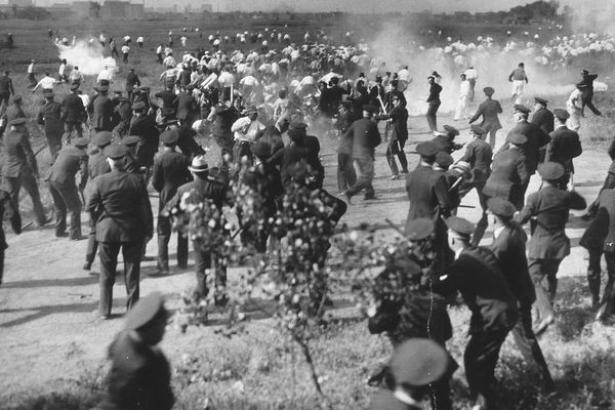Featured
Greg Mitchell (History News Network)
Excerpt
The first film to fully explore the 1937 tragedy in Chicago, when police shot and killed ten pro-labor marchers–and the shocking film cover-up that followed.
A major labor strike is back on the front pages this week, as Writers Guild members—movie and TV writers—have walked out. The most obvious fallout so far: late night talk shows going dark or struggling for jokes. Stephen Colbert, before signing off on CBS for who knows how many weeks, did declare: “This nation owes so much to unions.”
Labor actions and organizing, in fact, have been surging in recent years, mainly in new industries, from Starbucks to Amazon and Apple.
Decades in the past, strikes often led to violent conflict between workers and local police. It virtually never happens today. This is at least partly due to what happened eighty-six years ago this month in Chicago, after police shot forty steel strikers and supporters (mainly in the back) and killed ten of them in what has become known as The Memorial Day Massacre. No labor conflict has come close to this toll since.


